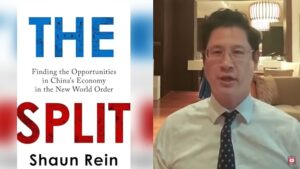
China’s technology, design, and culture are part of a fusion that reshapes the country, says innovation expert Ashley Dudarenok in an analysis by the state-owned China Daily. “It’s a holistic shift, where tech meets culture, design, and daily life, and this wave is just starting,” according to Ashley Dudarenok
China Daily:
The fusion of technology and storytelling has elevated Chinese pop culture to new heights. Video games such as Black Myth: Wukong, based on the classic novel Journey to the West, are drawing global praise for both their cinematic visuals and mythological depth.
“It’s a holistic shift, where tech meets culture, design, and daily life, and this wave is just starting,” according to Ashley Dudarenok, founder of China-focused digital marketing company Alarice.
Platforms like TikTok and Xiaohongshu (RedNote) are at the center of this movement. TikTok, developed by China’s ByteDance, is not only a global leader in short-form video but also ranked by Brand Finance as the world’s seventh most valuable brand, ahead of Instagram and Facebook…
Dudarenok attributed this rise to China’s multi-pronged strategy of massive R&D investment, tax incentives for global co-productions, and a creative wave led by Gen Z content makers.
In 2024 alone, China invested 3.6 trillion yuan ($502 billion) in research and development, as per the National Bureau of Statistics…
Younger generations, particularly Gen Z and Millennials, are engaging with China in more nuanced ways. According to Brand Finance’s 2025 Soft Power Index, perceptions of China among digitally connected young people have improved significantly since 2020.
“Gen Z appreciates the blend of heritage and hyper-modernity,” said Dudarenok. “Black Myth: Wukong isn’t just a game, it’s a cultural ambassador that shifts how people view Chinese creativity.”…
Despite the momentum, challenges remain. Some cultural exports still struggle to resonate abroad due to localized storytelling or dense cultural references.
“Many Chinese pop culture exports focus on fusing ancient stories with modern values, which can sometimes limit global reach,” said Dudarenok from Alarice.
She pointed to Ne Zha 2, which became the highest-grossing animated film of all time, yet earned 99 percent of its revenue on the Chinese mainland.
“While the world is fascinated by companies like DeepSeek and Unitree, it will take time for people to fully embrace these innovations,” she said. “As interactions with China increase, initial apprehension will give way to excitement and appreciation.”
Ashley Dudarenok is a speaker at the China Speakers Bureau. Do you need her at your meeting or conference? Do get in touch or fill in our speakers’ request form.
Are you looking for more innovation experts at the China Speakers Bureau? Do check out this list.










